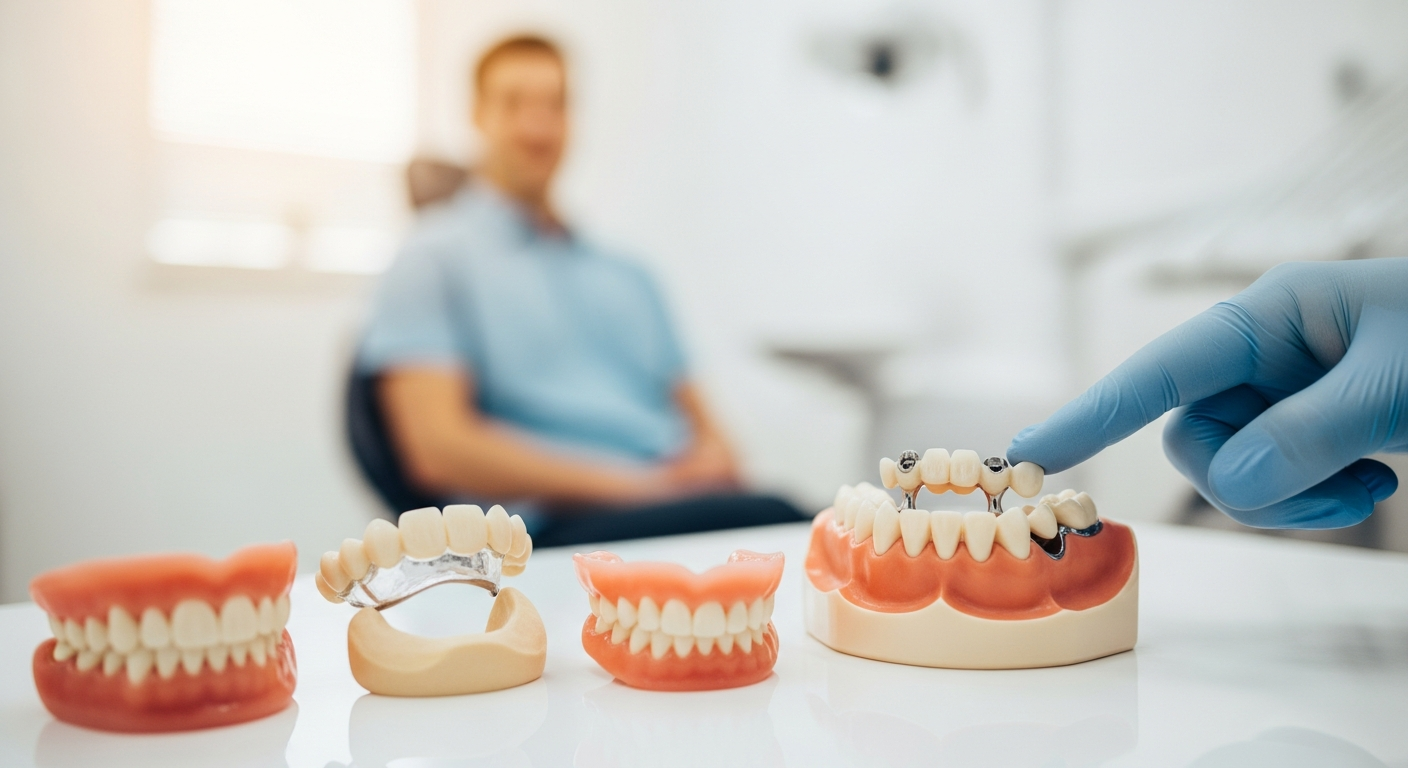Exploring the Benefits of Dental Implant Clinical Trials: Advancing Treatment Options
Dental implant clinical trials play a crucial role in advancing dental procedures by testing new techniques, materials, and technologies. These trials provide valuable insights into improving the safety and effectiveness of dental implants, which can lead to better outcomes for patients. Participating in a clinical trial offers the opportunity to receive cutting-edge treatments while contributing to the future of dental care. Understanding when and how to participate can open doors to innovative solutions that enhance oral health and restore smiles.

What Are Dental Implant Clinical Trials?
Dental implant clinical trials are systematic research studies designed to evaluate new implant technologies, surgical techniques, or treatment protocols before they become standard practice. These trials follow strict scientific protocols and regulatory guidelines to ensure patient safety while gathering comprehensive data on treatment effectiveness. Participants in these studies receive experimental treatments under careful medical supervision, often at reduced or no cost, while researchers collect valuable information about outcomes, healing processes, and long-term success rates.
Clinical trials for dental implants typically focus on several key areas: testing new implant materials such as advanced titanium alloys or ceramic alternatives, evaluating innovative surface treatments that promote better bone integration, assessing new surgical techniques that reduce healing time, and studying digital technologies that improve implant placement precision. These studies are conducted in phases, starting with small safety studies and progressing to larger effectiveness trials before treatments receive regulatory approval.
Why Are Clinical Trials Important for Dental Implants?
Clinical trials serve as the foundation for evidence-based dental practice, ensuring that new implant technologies are both safe and effective before reaching the general public. Without these rigorous studies, dental professionals would lack the scientific data needed to make informed treatment decisions, potentially putting patients at risk or offering suboptimal care. The importance of clinical trials extends beyond individual patient outcomes to influence the entire dental implant industry.
These studies drive innovation by providing manufacturers and researchers with concrete feedback about their products’ performance in real-world conditions. They help identify potential complications early, leading to improved designs and techniques that benefit future patients. Clinical trials also establish standardized protocols for new treatments, ensuring consistent quality of care across different dental practices. Additionally, they contribute to the growing body of scientific literature that guides treatment guidelines and insurance coverage decisions.
The rigorous nature of clinical trials also builds patient and practitioner confidence in new technologies. When a dental implant system or technique has been thoroughly tested through multiple phases of clinical trials, both patients and dentists can feel more confident about its safety and effectiveness compared to treatments that lack such comprehensive evaluation.
When to Consider Participating in a Dental Implant Clinical Trial
Participation in dental implant clinical trials may be appropriate for individuals who meet specific criteria and understand both the potential benefits and risks involved. Ideal candidates often include patients who need dental implants but may not qualify for standard treatments due to challenging bone conditions, medical complications, or previous implant failures. Those seeking access to the latest technologies or techniques not yet available through traditional dental practices may also benefit from trial participation.
Consider clinical trial participation if you have complex dental needs that haven’t responded well to conventional treatments, insufficient bone density for standard implants, or medical conditions that complicate traditional implant procedures. Additionally, patients interested in contributing to dental research advancement while potentially receiving cost-effective treatment may find clinical trials appealing.
However, participation requires careful consideration of factors such as time commitments for additional appointments and follow-up visits, willingness to accept that experimental treatments may not work as expected, and understanding that you may receive a placebo or standard treatment rather than the experimental option. Potential participants should also consider their comfort level with being part of medical research and their ability to comply with study requirements.
The Future of Dental Implants: How Clinical Trials Shape the Industry
Clinical trials continue to shape the future of dental implantology by driving innovations that promise to make implant treatments more accessible, predictable, and successful for a broader range of patients. Current and upcoming trials are exploring revolutionary technologies such as 3D-printed custom implants, bioactive coatings that accelerate healing, and digital surgical guides that enhance precision.
Emerging research focuses on developing implants that integrate more quickly with bone tissue, reducing the time between implant placement and final restoration. Scientists are also investigating new materials that may eliminate the risk of allergic reactions while providing superior strength and durability. Additionally, trials are examining techniques for growing new bone tissue around implants, potentially making implant treatment possible for patients who previously lacked sufficient bone density.
The integration of artificial intelligence and machine learning into implant planning and placement is another area of active research. These technologies promise to improve treatment outcomes by analyzing vast amounts of data to predict optimal implant positioning and identify potential complications before they occur. As these innovations progress through clinical trials, they will likely transform how dental professionals approach implant treatment, making procedures more efficient and successful.
Future clinical trials will likely focus on personalized implant treatments tailored to individual patient genetics and healing characteristics, further improving success rates and patient satisfaction. The continuous cycle of research, testing, and refinement through clinical trials ensures that dental implant technology will continue advancing, benefiting patients worldwide with more effective and accessible tooth replacement options.
Conclusion
Dental implant clinical trials play an essential role in advancing oral healthcare by rigorously testing new technologies and techniques before they reach mainstream practice. These studies offer unique opportunities for qualified patients to access cutting-edge treatments while contributing to the future of dental care. Understanding the nature, importance, and potential benefits of clinical trial participation can help individuals make informed decisions about their dental implant treatment options. As the field continues to evolve through ongoing research and innovation, clinical trials will remain the cornerstone of progress in dental implantology, ultimately leading to better outcomes for patients seeking to restore their smiles and oral health.
This article is for informational purposes only and should not be considered medical advice. Please consult a qualified healthcare professional for personalized guidance and treatment.




